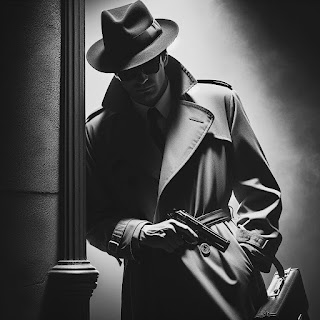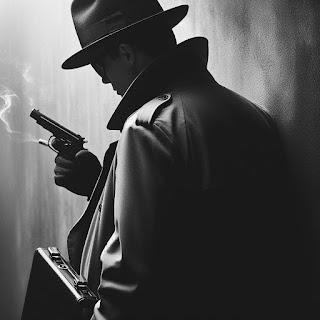This post comes to you today from the Pet Peeves Department here at the SleuthSayers Building. Many of us who work at SS have occasionally posted about annoying words or phrases, usually those encountered in fiction but sometimes those we run into every day in the wild. This is one of those posts, so if you'd rather not hear someone grumble this soon after a day of thanksgiving, feel free to skip it and do something that's more fun. If you do read it, feel free to disagree with its contents. I'll probably look at this next week and disagree with it myself.
As of this moment, though, these are the current burrs under my saddle--or, as Dr. Suess might say, the rocks in my socks:
- Business terms and buzzwords like paradigm, deliverables, added value, takeaways, productivity, etc., when used in everyday speech. "Can you tell me the takeaways from To Kill a Mockingbird?"
- Modern language in historical fiction. Words/phrases/slang like hairstyle, shenanigans, scrapbook, mommy, daddy, mesmerize, sadist, hello, hit the road, okay, rat him out, etc., have been around awhile, but they still probably aren't as old as you might think. Same thing for most fantasy fiction. "Yo, Gandalf. Whassup?"
- Data/dayta/datta. This is a pronunciation thing. I like dayta. I don't like datta. Can't help it. I also don't like asterix, nuke-ular, and expresso, but those are truly incorrect. Dayta's a personal preference.
- Alright. I like all right. I don't think alright is all right.
- A coffee, as in "I need a coffee." I prefer "I need coffee" or "I need some coffee" or "I need a cup of coffee." To me, saying you want a coffee or an iced tea is like saying you want a bread or a soup. Yes, I realize it's common usage, but it still bothers me. (Irritable Vowel Syndrome?)
- Everyday. I think everyday is an adjective, and only an adjective. "I'm wearing my everyday shoes" is right. "I wear these shoes every day" is right. "I wear my every day shoes everyday" is wrong. Same thing with words like backyard and backseat. "My backseat driver sits in the back seat" is right. So is "My backyard swing is located in my back yard." Switch those up and they're wrong.
- Setup. This one probably hurts my foot more than any of the other rocks. "The operation we set up was a setup" is right. "I setup the rooms without any help" is wrong.
- Impact used as a verb. Yes, I know that's allowed, but I think it works best as a noun. I've noticed that most news anchors and weather forecasters these days are using it as a verb because I guess they think it makes their statements stronger and more powerful. ("Garbage pickup problems impact city residents!" "Cold snap impacts the homeless!") I think affect works just as well. Maybe it's because I have medical people in my immediate family, but I always think of someone who's impacted as someone who's agonizingly constipated.
- Other nouns like dialogue and journal and fellowship used as verbs. "We need to dialogue," or "I've been journaling" or "Come to the church tonight and we'll fellowship" sounds wrong to me. I probably need to Google it (which, for some reason, sounds correct).
- The overuse of as and ing constructions in writing. Since it's not grammatically incorrect, this mistake is sometimes hard to catch in our own writing--but it's silly and amateurish. "Turning, I saw her leave. Running after her, I shouted to her as she climbed into the car. As I reached the sidewalk, she smiled as she waved goodbye. Sobbing, I walked back inside." Talk about instant rejection--that'll do it.
- Phrases like for you and I. It should be for you and me, as in for you and for me. The sad thing is, you see and hear this blunder ALL THE TIME, and from people who should know better.
- I could care less. I know this phrase has been around for years, but I still haven't gotten used to it--maybe because it makes absolutely no sense. One word I have finally agreed to use is done instead of finished, but even that one took me a while to accept.
- The reason why this happened is because . . . Enough said, about that. A discussion of redundancy would keep us here all day. In fact, it would keep us here all day.
- The use of then without a preceding comma. An article I saw some time ago, and I can't remember where, said that a lot of writers nowadays are doing that. Here's an example: "I waved to my neighbor then started mowing my grass." I think that's incorrect. And sure enough, I noticed last night that this has been done three times already in the new Jack Reacher novel, and I'm only forty pages in. What's up with that? I think it's correct to say either "I waved to my neighbor, then started mowing my grass" or "I waved to my neighbor and started mowing my grass." But if you do use then, I don't like leaving out that comma.
- Like. I'm like, don't even get me started on this one.
- Media and data. Those words, like family or group or herd, are collective nouns that I think work best with singular verbs. I like the data is correct. I don't like the data are correct. And I dern sure don't like the datta are correct. And yes, I know that's nitpicking.
- Utilize. I think utilize is a needless word that people say to try to sound more intelligent. Use use instead. Writers often know this, so it's mostly something you hear on TV--and hearing it impacts me!
- Writers saying a character crosses to the bar, the bed, the door, the kitchen sink, etc. Example: "John crossed and answered the phone." I realize we should try to use as few words as possible. but if it's necessary to say someone walks across a room I think maybe he should "walk across the room." This is a small thing--most of these are--but I see it so often I thought I'd mention it.
- You guys. Old-school or not, I don't much like referring to a mixed-gender group as you guys. A local TV reporter at a crime scene said "you guys" four times in less than a minute the other might when addressing the news team in the studio. (Full disclosure: I use the phrase occasionally myself. But I don't like myself when I do.)
- The use of Ms. with a woman's first name only. Using Miss with a first name--usually when addressing older ladies--is a sign of familiarity, especially in the south. "Hi, Miss Ellie." Married or not, politically correct or not, it's never, ever Ms. Ellie. If you want to use Ms. (or Mrs.), say Ms. Ewing.

More words/phrases I've grown achingly weary of hearing and seeing: "It is what it is," "no problem" (when did this replace "thank you"?), "stunning video," "iconic," "functionality," "let's do this!" "outside the box," "my amazing husband/wife/etc.," "give it up for," "reach out to," "got your back," "begs the question," "feeling nauseous," "at this point in time," "my journey," "it's problematic," "a sense of closure," "know what I'm sayin'?" "low-hanging fruit," yada yada. For that matter, I don't even like "yada yada." (And sportscasters are a whole 'nother story. I could possibly understand saying "w" in place of "win" if there was any reason at all to do it. Actually it takes longer to pronounce the letter "w" than it does to say the word "win.")
Other things I don't like are air-quotes, chains on eyeglasses, Botoxed lips, flat-billed baseball caps, The Bachelorette, mullets, cold weather, downer endings, present-tense writing, submission fees, head-tosses, loud cellphone conversations in public, and TV commercials urging you to "tell your health-care professional about such-and-such medication." For God's sake, if your doctor needs to be told how to treat your ailments, you need a new doctor.
The good thing about saying I dislike all these things is that the older I get, the more people will forgive me, or just disregard my opinions. ("Hey, he's old, what does he know." Usually spoken with a toss of the head.)
What are some of the annoying things in your life, and especially in the spoken or written words you hear or read? (Not necessarily wrong, but just irritating?) And yes, you can include opinion-column blog posts. The longer this one gets, it's becoming irritating to me too. If you by chance like this kind of thing, here are two of my SS posts from several years ago that talk more about irksome words/phrases, and are a little less opinionated: "Do's and Don'ts, Wills and Wont's, Part 1" and "Do's and Don'ts, Wills and Won'ts, Part 2."
Having pointed out all these thorns in my side, I should mention that there are thankfully many things I do like, and not just my family, my house, and my friends. I like seafood, warm weather, Apple computers, lemon-icebox pie, homemade chili, Netflix, straight pool, reclining theater seats, Word Hunt, Joe Lansdale, Harry Nilsson, Cass Elliot, beaches, burritos, mystery magazines, the guitar, the piano, Yellowstone, Jeopardy, and The Sopranos. Not necessarily in that order.
And SleuthSayers. I like SleuthSayers. I hope you do, too.
On that note, next time I promise I'll be more upbeat. Until then, I can't help remembering something a colleague said to me several years ago. "I'm done with all this positive-thinking stuff," he said. "I knew it wouldn't work, and sure enough, it didn't."
Hard to argue with that.














